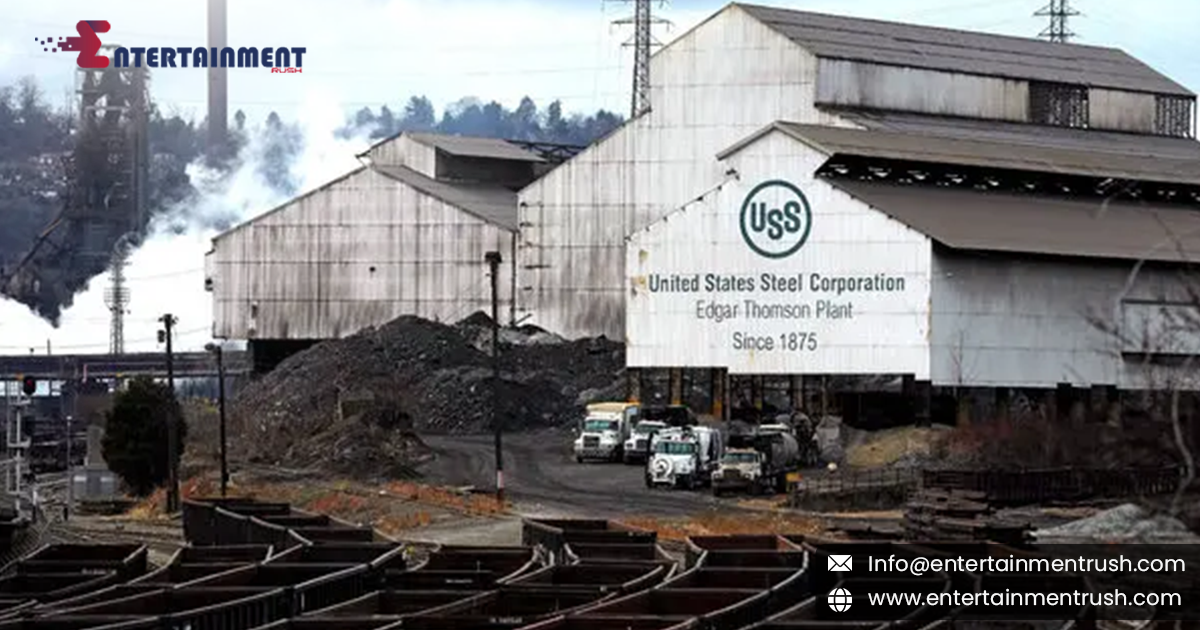The world of international business often involves complex negotiations and geopolitical maneuvering, and the recent tension between the U.S. and Japan over a steel merger is a prime example. The title question, “How is U.S. blowback to steel merger vexing Japan?” captures the essence of the ongoing conflict, which has significant implications for both nations’ economic and diplomatic relations.
The Steel Merger in Question
At the heart of the issue is a high-profile steel merger involving major Japanese and American companies. This merger was initially hailed as a strategic move to consolidate industry resources and enhance global competitiveness. However, the U.S. government’s reaction to the deal has been less than favorable, leading to a complex situation that has left Japan grappling with unexpected challenges.
The U.S. Blowback
The term “blowback” refers to the adverse reaction or unintended consequences of a policy or action. In this context, the U.S. blowback to the steel merger encompasses a range of responses, including regulatory hurdles, political backlash, and trade disputes. Here’s a closer look at the main issues:
Regulatory Challenges:
The U.S. has imposed stringent regulatory requirements on the merger, citing concerns about market competition and national security. These regulatory barriers have created significant delays and complications for the Japanese companies involved.
Political Backlash:
The merger has sparked political debate in the U.S., with some lawmakers arguing that it could undermine domestic steel industries and lead to job losses. This political opposition has intensified the scrutiny of the merger and complicated the approval process.
Trade Disputes:
The steel merger has also led to trade disputes between the two countries. The U.S. has raised concerns about potential trade imbalances and unfair competition, further straining economic relations with Japan.
Japan’s Response and Concerns
Japan is facing several challenges as a result of the U.S. blowback to the steel merger:
Economic Impact:
The regulatory and political obstacles have caused significant delays and additional costs for the Japanese companies involved in the merger. This has affected their financial projections and operational plans, leading to economic uncertainty.
Diplomatic Strain:
The blowback has strained diplomatic relations between Japan and the U.S. The Japanese government is concerned that the U.S. response could set a precedent for future international business deals, potentially impacting other sectors and investments.
Strategic Realignments:
In response to the blowback, Japan may need to reconsider its strategic approach to international mergers and acquisitions. This could involve reevaluating partnerships, seeking alternative markets, or adjusting business strategies to navigate the evolving regulatory landscape.
The Broader Implications
The tension over the steel merger has broader implications for international trade and economic relations:
Impact on Global Trade:
The blowback highlights the challenges of navigating international trade agreements and regulatory environments. It underscores the importance of understanding and managing cross-border business dynamics to avoid potential conflicts.
Regulatory Trends:
The U.S. response to the merger could signal a shift in regulatory attitudes toward foreign investments and mergers. Companies operating on a global scale will need to stay informed about changing regulations and adapt their strategies accordingly.
Diplomatic Relations:
The situation emphasizes the need for careful diplomatic engagement and communication between countries involved in international business deals. Effective diplomacy can help mitigate conflicts and facilitate smoother negotiations.
Conclusion
The question “How is U.S. blowback to steel merger vexing Japan?” encapsulates a complex and evolving situation that affects both economic and diplomatic realms. The U.S. response to the steel merger has created significant challenges for Japan, impacting regulatory processes, political dynamics, and trade relations. As both nations navigate this contentious issue, the outcome will likely have far-reaching implications for international business and economic policy. For Japanese companies and policymakers, understanding and addressing the blowback is crucial for managing future international ventures and maintaining strong bilateral relations.
